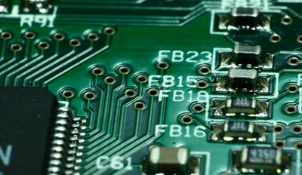
Over the past century, the electronics industry has shifted drastically. For example 96% of Americans now owning a mobile phone and over 74% own a computer device (according to Pew Research Centre) – the electronics market was booming. However, what will recent events such as COVID-19 do to the industry? Amy Leary explains.
How is COVID-19 affecting the market?
The virus has caused countries such as Spain, France, UK and China to halt borders and lockdown. This has affected the electronics industry in numerous ways – especially as Wuhan is a huge electronics manufacturing location. Electronics manufacturers anticipate at least a five week product shipment delay from suppliers due to the epidemic, according to a survey conducted by IPC, a global electronics manufacturing association. The group says shipping delays from China and other countries where the virus has spread are already having negative impacts on manufacturers. However, electronics manufacturers expect delays to be longer than what their suppliers are currently quoting. On average, executives expect shipment delays to be at least five weeks. “The delays will likely have ripple effects for the rest of the year,” said John Mitchell, IPC’s president and CEO. “The longer China is affected by the epidemic, and the more it spreads to other parts of the world, the supply chain will experience more and varied strains and disruptions.”
Counterfeit trickling Into the market
Counterfeit components are a huge threat to the electronics market. The counterfeit sector is growing year on year which affects authorised manufacturers producing the real components. It has become necessary for distributors and manufacturers of electronic components to inspect incoming electronic components to ensure they are authentic and are not dangerous.
Despite the impressive high-tech minds within the industry, no one has been able to overcome the markets most deceptive challenge: the counterfeit sector. Why do people make counterfeit parts? Most manufactures create counterfeit electronics purely for a higher profit margin. Many manufactures will claim the item is legit and sell it at an authentic rate. According to USA Today, a California man tried to import fake computers, which would have been worth US$2.6 million if genuine.
This affects legit authorised distributors. To prevent counterfeit electronics continuing to seep into the industry, look out for the packaging of the components. Many companies invest in anti-counterfeiting packaging. The global market for anti-counterfeiting, brand protection and security packaging reached US$3.09 billion in 2019, according to a report from Smithers Pira. Another way to avoid counterfeit electronics would be using authorised search tools. eBOM for example hosts an ECIA Authorised Search Tool which only presents the part numbers of authorised distributors.
Environmental issues and the electronics industry
Nowadays people are a lot more aware of environmental impacts they have on the environment. So much so that some people will avoid purchasing a product if they know it is from an unethical source which will contribute to climate change. This is also playing an effect on the electronics market. Companies are recognising that most potential customers prefer purchasing products which benefits the environment, rather than polluting it. Mouser Electronics quoted that ‘Mouser has improved its packaging for smaller orders by implementing environmentally friendly packaging. Mouser has significantly reduced the amount of packing material, while still providing quality protection to all products while in transit. Mouser’s new, smaller, lighter packaging has a significant environmental impact by reducing fuel consumption and emissions during transport. Also, by utilising a material that is both biodegradable and recyclable, we are lowering the amount of waste.’
As well as this, Digi Key has upped its environmental contribution. It is quoted that ‘Digi-Key has implemented numerous recycling & reuse programs for products such as paper, cardboard, plastics, aluminium cans, packing material, batteries, metals, electronic components, hazardous materials and other materials. Some material is donated to local charity and business. To reduce the landfill impact, Dig-Key’s ‘Green Mug’ program provides all new employees with a reusable mug reducing the amount of single use plastic, aluminium cans and Styrofoam utilised. Throughout the facility, water bottle refill stations have been installed.’ With Digi Key being one of the largest electronic component distributors globally, this is a great step towards influencing other suppliers/distributors to follow their steps of reducing packaging.
Many large organisations within the market are investing in electric vehicles to deliver their goods. Many mail services for example such as the Royal Mail have introduced electric vans to distribute post with lower emissions and reduced environmental impact – along with being more appealing to customers.
Artificial Intelligence is taking over
AI within the medical sector has proven successful and reliable – especially in unsettling times like these. According to a Sky News study, Artificial Intelligence is better than expert radiologists at spotting breast cancer. This results in fewer mistakes made by radiologists and more accurate results for patients. The study found that an AI system developed by Google Health can identify cancer in breast screening mammograms with fewer false positives and fewer false negatives than radiologists.
Not only this, according to Business Insider – ‘the US Centres for Disease Control and Prevention has partnered with Microsoft to develop a coronavirus self-checker to help people who are feeling sick determine whether they should go to the hospital to seek treatment.’ This form of AI is an efficient way to alert people if they should go to receive treatment as it’s cost effective and prevents physical contact. The chatbot works by asking the patient a series of questions such as their age, location, symptoms etc. AI is shifting the electronics market to become a starter industry and reducing human interaction.
